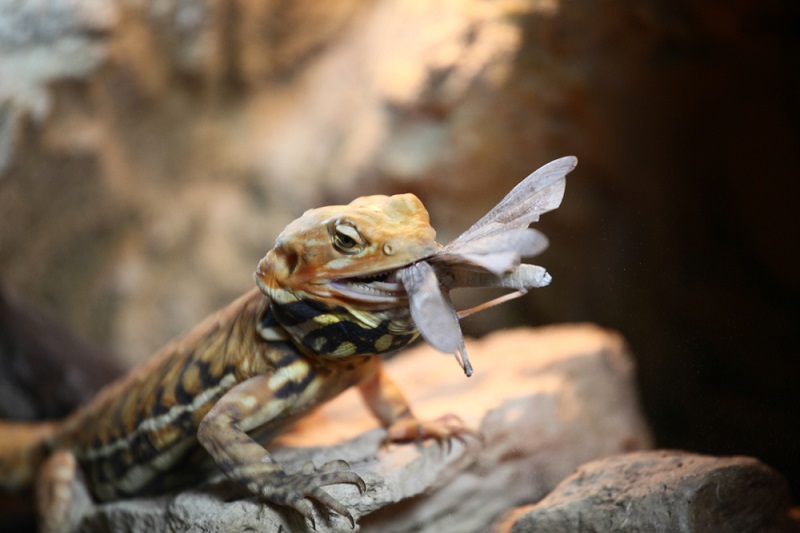The feeding methods for lizards vary depending on the type and size of the lizard. Here are some basic guidelines for lizard feeding:

Food selection: Lizards are omnivorous animals, and their diet includes insects, reptiles, small mammals, fruits, etc. Based on the species of lizards you raise, understand their food preferences and needs, and provide corresponding food. Common lizard foods include small crickets, silkworm pupae, small grasshoppers, small eels, and insect larvae.
Food size and quantity: To avoid lizards swallowing food that is too large or too small, choose food that is suitable for their mouth size. The size of the food should be about one-third of the width of the lizard's head. In addition, the amount of food should be controlled during feeding to avoid overfeeding.
Diversity of feed: Try to diversify the diet of lizards by providing different types and types of food to ensure they receive balanced nutrition. You can take turns providing different insects or other foods, and you can also add some fruits or vegetables appropriately.
Supplementing nutrients: Some species of lizards may require additional nutritional supplements, such as calcium and vitamin D3. These nutrients are crucial for the skeletal health of lizards. You can consult a pet store or veterinarian for nutritional supplements suitable for your lizard.
Pay attention to the freshness of food: Ensure fresh food is provided to lizards and avoid using dead insects. Lizards usually have an interest in active prey and fresh food is more nutritious.
Provide drinking water: Lizards need an appropriate amount of water to maintain their body's hydration. Provide a shallow water basin or spray so that lizards can drink water or get water from water mist. Ensure that the water source is kept clean every day and replaced in a timely manner.
Observation and adaptation: closely observe the appetite and behavior of your lizard. The needs of each lizard may vary, so adjust the type and quantity of food appropriately based on observation.
Please note that the above are only some basic guidelines for lizard feeding. Different types of lizards may have different breeding requirements, so before choosing and breeding lizards, it is best to have a detailed understanding of the special needs of the lizard species you are interested in, and refer to relevant breeding guidelines and expert advice.
animal tags: lizard
We created this article in conjunction with AI technology, then made sure it was fact-checked and edited by a Animals Top editor.